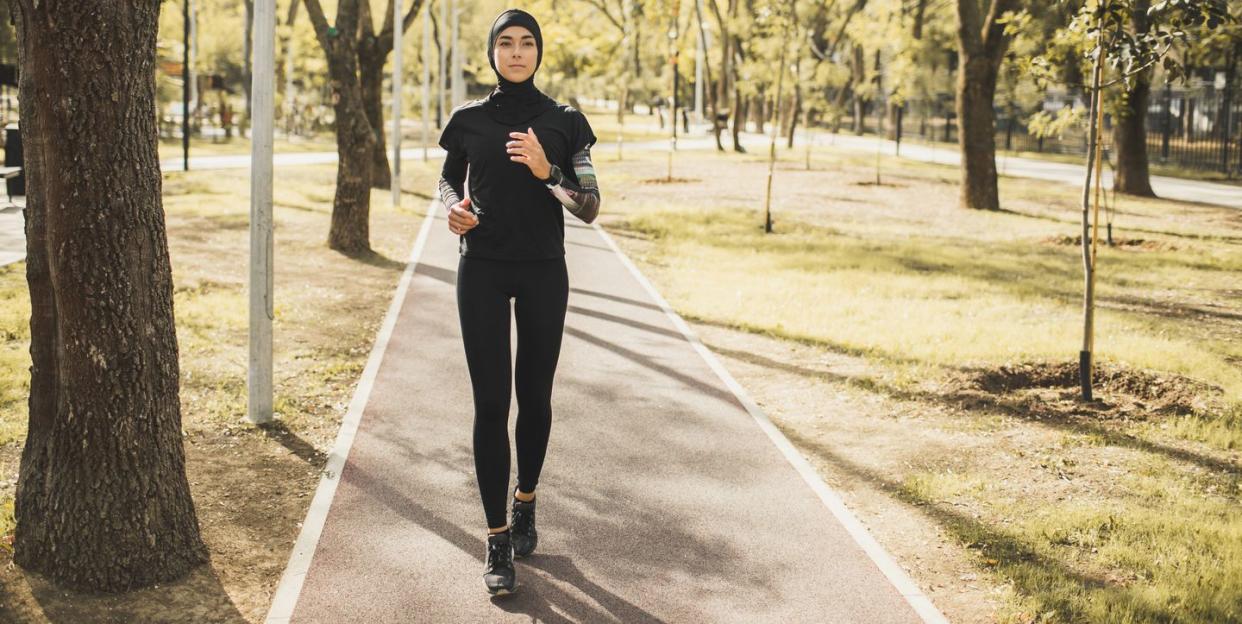If You Get a Concussion, Light Exercise in the Days Afterward May Shorten Recovery Time

Light aerobic activity—such as walking, running, stationary cycling, and swimming—can play a valuable role in shortening concussion recovery time, according to research.
It’s still important to rest for the first 24 to 48 hours after a concussion. If symptoms have stabilized and not gotten worse, then it’s safe to begin light exercise, and to continue as long as symptoms don’t increase more than mildly.
Although post-concussion recovery often involves a lot of rest, it’s possible that light aerobic activity—such as walking, running, stationary cycling, and swimming—can also play a valuable role in shortening that recuperation time— especially if it’s done soon after getting injured—according to a study in The Lancet Child & Adolescent Health.
Researchers looked at 118 adolescents who had a diagnosed sports-related concussion and split them into two groups: One did aerobic exercise for at least 20 minutes daily for up to four weeks after the initial injury, while the other did stretches for the same amount of time. Recovery progress was determined based on symptoms and exercise tolerance.
→ Get Bicycling All Access to stay on top of the latest cycling and health news!
Those in the aerobic group saw significantly faster recovery, with risk of persistent symptoms lowered by 48 percent compared to the stretching-only group.
These results match the same research team’s previous conclusion in a 2019 study published in JAMA Pediatrics. In that study, participants assigned to an aerobic exercise group recovered four days faster than those who did stretching instead.
Although both studies were done on teens, the approach is applicable to adults as well, according to lead researcher John Leddy, M.D., clinical professor of orthopedics at the University of Buffalo in New York, who also directs the university’s Concussion Management Clinic.
“Although this strategy has not been studied as extensively in adults, I suspect that it applies to all ages,” he told Bicycling. “This clearly demonstrates that strict physical rest until symptoms spontaneously resolve is no longer an acceptable way to treat sport-related concussion in adolescents.”
The timing of the light activity also matters, Leddy added. He and his team support the recommendation to rest for the first 24 to 48 hours after a concussion. At that point, if symptoms have stabilized and not gotten worse, then it’s safe to begin light exercise, Leddy said, and to continue as long as symptoms don’t increase more than mildly.
“We define ‘mild’ as an increase in symptoms by up to one or two points on a 10-point scale, compared with the pre-exercise symptom level,” he said.
If it goes up by more than that, the advice is to stop the exercise bout and try again the next day.
“An important point is that mild symptom exacerbation is okay—it will not cause brain damage or delay recovery,” he said.
Another tip from the research: Staying active in general is also a boost for everyone, he added. Previous research, and Leddy’s own observations as a sports medicine physician, indicate that athletes tend to recover faster than non-athletes, he said.
That doesn’t mean if you get a concussion you should continue to jump on your bike and power through it. Leddy emphasized that concussion treatment needs to be tailored to an individual’s symptoms and managed carefully since part of recovery is slowly building exercise tolerance back up.
Also, he added, exercise that’s prescribed for adults to recover from concussion usually has to be combined with other therapies. For example, that might include vestibular (related to improving balance and reducing dizziness) and visual rehab, and therapeutic manipulation of the neck and head. By contrast, Leddy said that in some cases, aerobic exercise may be all an adolescent athlete might need.
The takeaway? Keep getting on your bike to maintain your fitness, since that can improve recovery if you ever happen to get a concussion—and if that does occur, ask your doctor about adding light exercise to your recovery mix.
You Might Also Like
